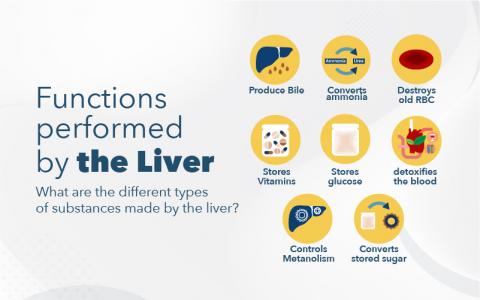
We’ll confirm your booking shortly!
Please provide your number to receive updates.
Enter the 6-digit verification code we just sent you to through SMS. Change Mobile
1. At the Lab
Ask the Pathkind reception desk for your Visit ID
2. On Your Receipt
Visit ID is printed on the payment receipt / invoice
3. SMS / WhatsApp
Check messages received after your sample collection
Or
Contact Pathkind Support
7500075111
We’re unable to locate a visit with this Visit ID. Please check the Visit ID and try again, or contact the Pathkind lab where your sample was collected.

A liver function test is a panel of tests that is performed to check the functioning of the liver. It is a test that measures the levels of enzymes, proteins and other substances created by the organ. The aim of the test is to determine the health of the liver, how well it is functioning, clearing out waste, etc. A liver function test looks at the entire profile of the liver and its overall health.
The liver produces a range of substances that are necessary for healthy bodily functions. These are:
The above mentioned enzymes and proteins are extremely important for the smooth functioning of the organ. The liver function test panel checks the levels of these enzymes and proteins. The panel consists of the following tests:

The purpose of the liver function test is to figure out the overall health of the liver. The tests can be used to:
The test is done through the process of venipuncture. A needle is inserted into the vein for a blood sample collection.
You may need a liver panel test in case you are experiencing these symptoms:
You may be at a higher risk of developing a liver disease or infection if:
Reasons affecting the liver are:
Normal ranges are:
If the ranges of the enzymes and proteins produced by your liver are not normal, that is, whether they are high or low, it may mean the liver is not functioning normally. Other conditions may include:
Before a liver function test, you must contact your healthcare provider for special instructions. You may be asked to avoid certain foods and drinks before the test which could hamper the results.
You can book a liver panel test if you feel under the weather. For more information, you can visit our website, or you can even visit our nearest Pathology laboratory.
Discover precision diagnostics with Pathkind Labs, a trusted name in diagnostic services in India. Our NABL accredited labs, equipped with advanced technology, are staffed by a certified team of over 200+ senior pathologists and 2000+ technicians. From tailored health check-ups to specialized tests in Oncology, Neurology, Gynaecology, Nephrology, and more, we've got your health covered. Skip the hassle with online booking for tests or check-ups, available for both lab visits and at-home blood collection. For a seamless experience and early detection, choose Pathkind Labs in Gurugram. Book your appointment today and experience diagnostics made easy.
© 2026 Pathkind Diagnostics Pvt. Ltd. All Rights Reserved | Unsubscribe
